Learn by Doing: Second Year
This approach is reflected in the motto adopted from the institution's inception: Learning-Doing, encapsulated in the Latin expression "Labor Omnia Vincit" (Work Conquers All).
Since its inception, Zamorano has been guided by the constructivist approach in its educational model, led by Wilson Popenoe, our first director. This theory of learning holds that our students construct knowledge through direct experiences, hands-on work, and social interaction with their environment.
The emphasis on experiential learning allows not only to acquire knowledge, but also to develop values and skills in an active way, either individually or in collaboration with others.
This approach is reflected in the motto adopted from the institution's inception: Learning-Doing, encapsulated in the Latin expression "Labor Omnia Vincit" (Work Conquers All).
A-Transversal Knowledge Modules
They are the basis for the different value chains, offered by specific departments and applied along them.
B-Value Chain Modules
They are part of the value chains and are offered by the corresponding departments according to their areas of focus.
C-Integral Modules
Value chains conclude their last step and prepare to offer and manage products in the market.
SECOND YEAR MODULES
Module: Agroecology
Description and general objective of the module:
The Agroecology module offers the opportunity to apply cultivation strategies based on agroecological and human farm principles, through a collaborative and horizontal process on the techniques, practices and methods that adapt to the conditions of the Mesoamerican Dry Corridor, thus establishing a self-sufficient living agroecosystem (food sovereignty).
The module promotes the functional diversity, balance, productivity and resilience of the natural systems of the area and emphasizes agroecology and social processes that show community participation and local empowerment as resilient models in the face of current socioeconomic and environmental problems, additionally reinforces the triple dimension of the agroecological revolution: cognitive, social and technological.
At the end of the module, the student will be able to propose biodiverse and climate change resilient designs based on agroecological principles.
- Employ agroecological and human farm principles to develop biodiverse and climate change resilient designs within the agroecological farm.
- Use agroecological designs in the establishment and management of sustainable agricultural systems.
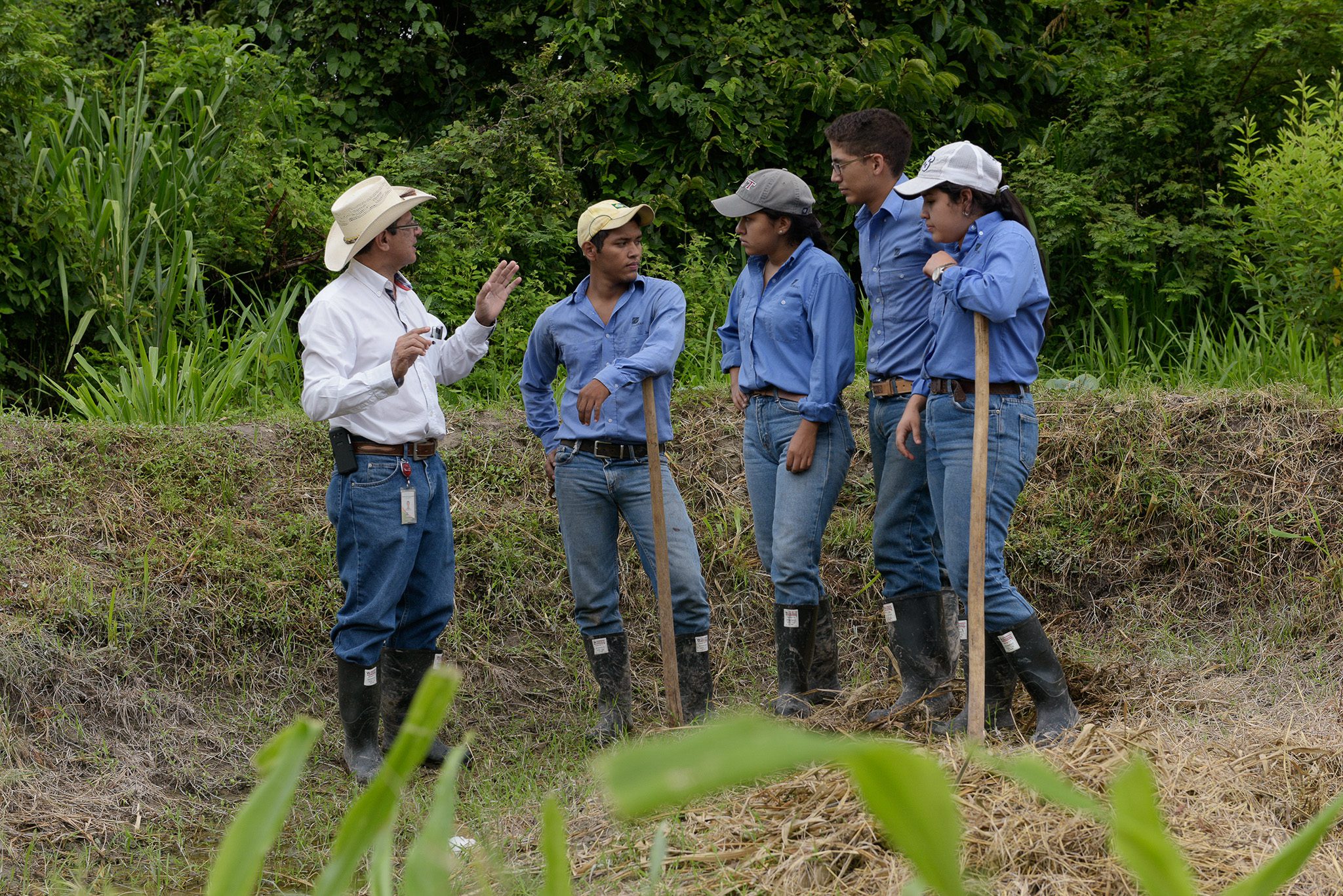
Module: Topography and Geographic Information Systems
Description and general objective of the module:
The module is designed to provide students with a comprehensive understanding of the fundamental procedures used in topographical and geographical surveys, as well as the opportunity to develop the ability to work with specialized programs in this field, such as: AutoCAD, Civil 3D and QGIS .
At the end of the module, the student will be able to apply the basic procedures to carry out topographic and geographical surveys and enter and analyze data in the programs used for the design of plans to finally obtain a graphic representation.
- Apply basic concepts of topography and geographic information systems in field and laboratory practices.
- Manage programs in the processing of topographic and geographic data.
- Associate topography applications and geographic information systems in agriculture, natural resource management and markets.
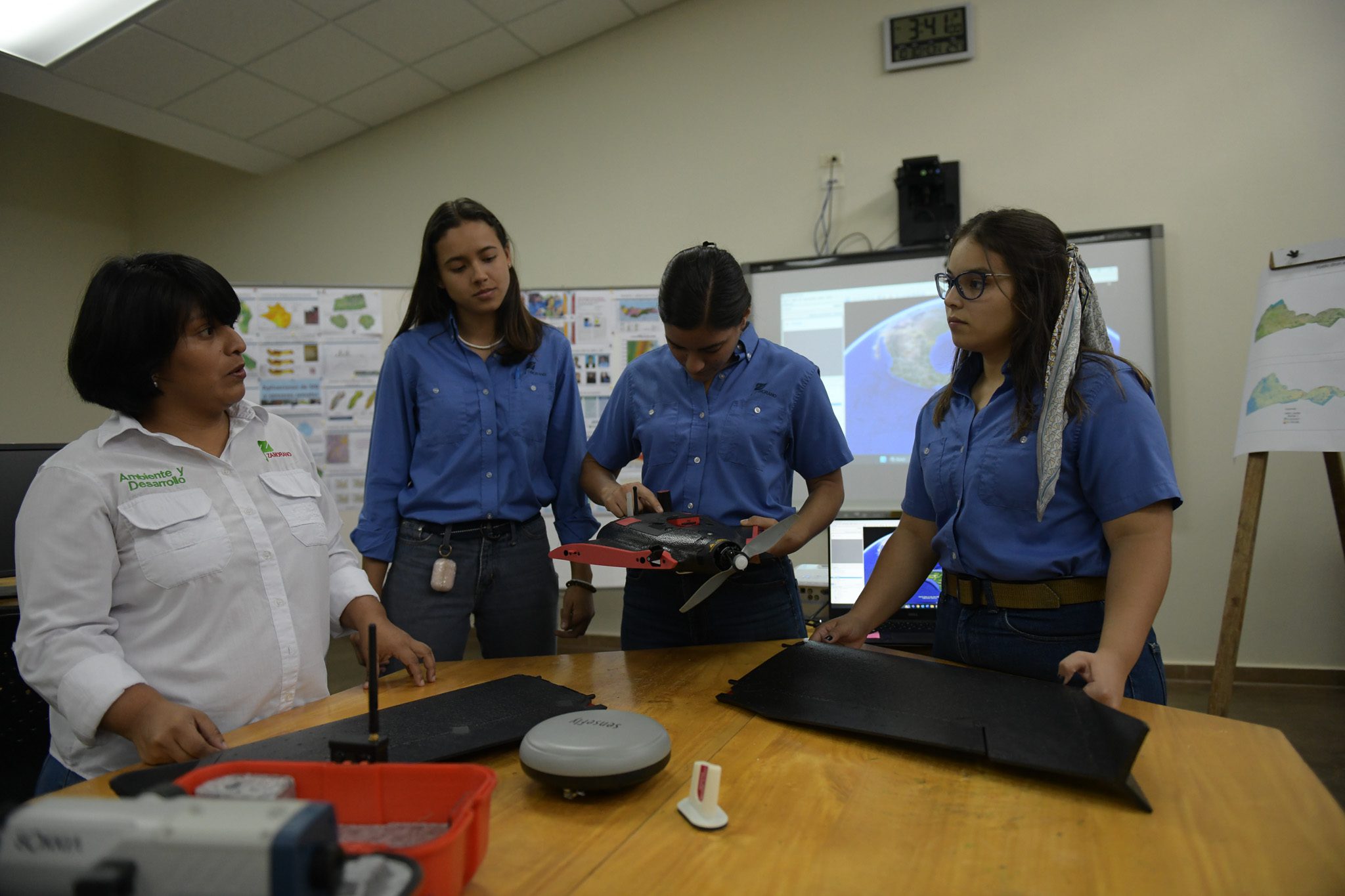
Module: Plant Protection
Description and general objective of the module:
In the Plant Protection module, students learn different ways of monitoring, identifying pests and diseases that affect vegetable crops. In addition, students understand the importance of carrying out integrated pest management, which includes carrying out cultural, botanical, sanitary practices and releasing natural enemies to reduce the use of pesticides in productive systems to a minimum, considering the impact on the environment. environment, human health and food production.
At the end of the module, students will have the necessary skills to efficiently manage agrochemical application equipment for pest and disease control.
- Interpret information that accompanies agrochemicals for their correct use and management in applications.
- Correctly use personal protective equipment in all activities that involve the handling of agrochemicals in order to carry out safe applications.
- Carry out field monitoring of horticultural crops for decision-making in pest and disease control.
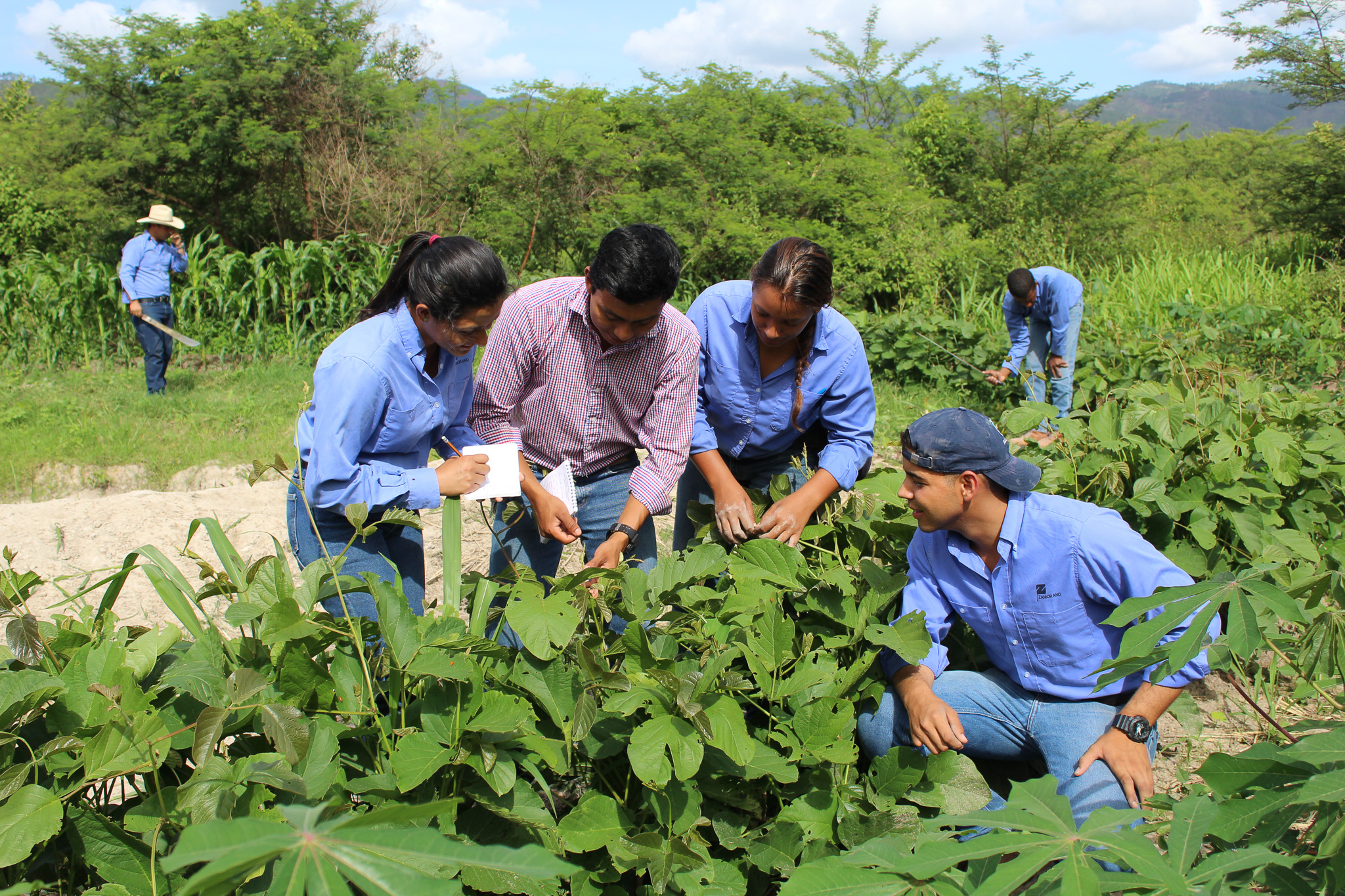
Module: Extensive Olericulture
Description and general objective of the module:
The module olericulture extensive, teaches students the principles of open field vegetable production, in this module the student is exposed to learning a variety of crops, and carrying out processes that allow him to learn about transplanting, irrigation, fertigation, weeding, tutoreostaked, tutoring, pruning, thinning and harvesting vegetables.
At the end of the module, the student will be able to identify different horticultural crops, as well as the best practices involved in their production.
- Identify the advantages and disadvantages of vegetable transplants, in order to have quality seedlings in the field that have growth according to their genetic characteristic for good performance, this through the development of productive activities.
- Identify the most common weeds in horticultural crops, their growth habits, forms of reproduction, different ways of controlling them, to carry out the elimination work efficiently, whether manually, culturally, mechanically or chemically, in order to obtain a quality crop and optimal performance.
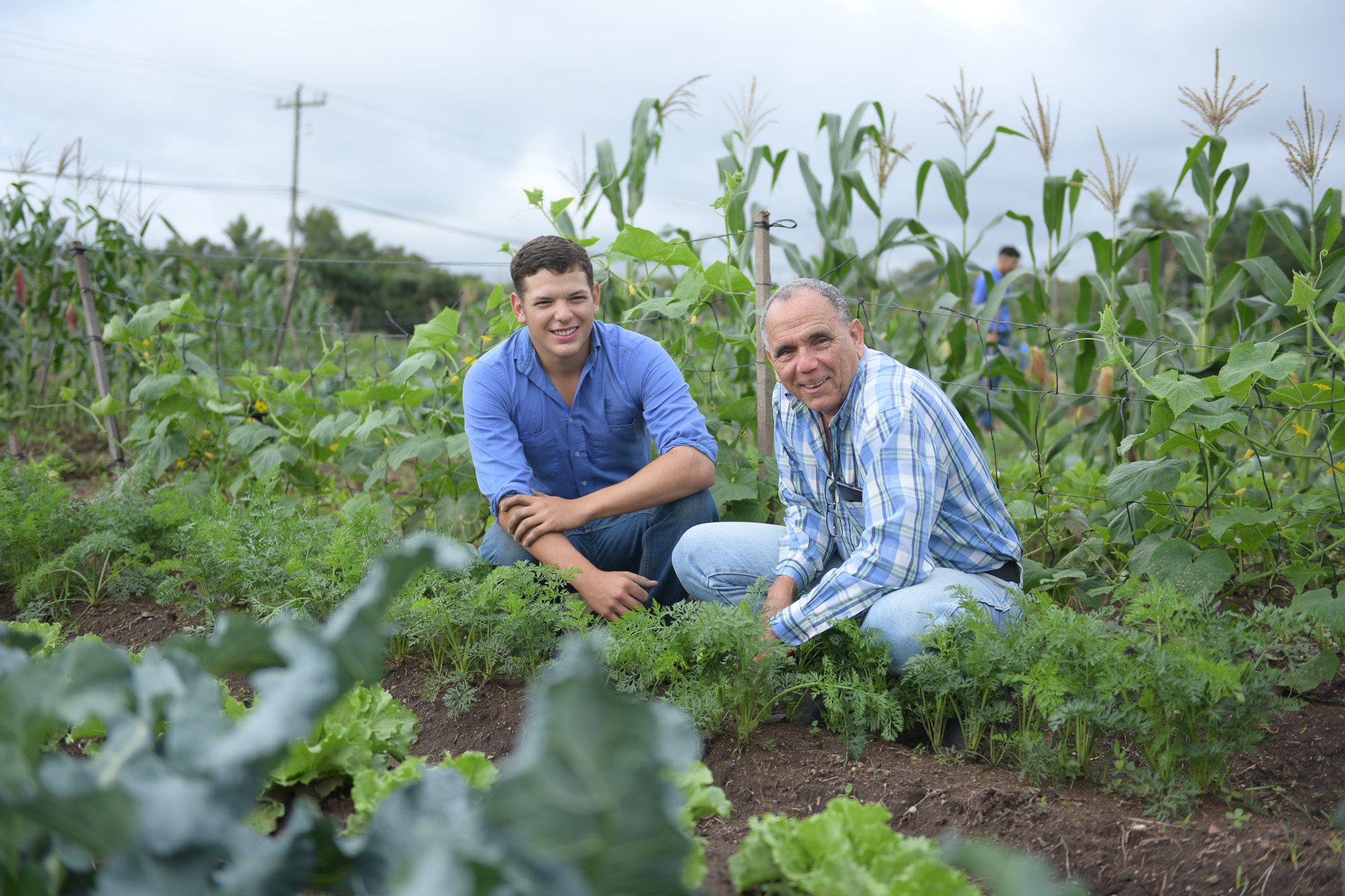
Module: Intensive Olericulture
Description and general objective of the module:
The module olericulture intensive develops in the student the skills for the production of vegetables intensively and under protected systems (greenhouses, tunnels and screen houses). In this module the student will learn about the production processes of a variety of crops, mainly tomato and chili, from the preparation of medium or substrate, transplanting, irrigation, fertigation, weeding, estaquillado, tutoreostaking, tutoring, pruning, thinning, harvesting and product classification.
At the end of the module, the student will be able to identify different protected systems, horticultural crops and their practices, applying quality standards required by the market.
- Plan vegetable production and maintenance activities in protected agriculture, for their optimal development considering the principles of sustainability.
- Identify horticultural practices for the management of tomato and chili crops (pruning, weeding,tutor, weed, harvest) using critical thinking.
- Identify asepsis activities in crops under greenhouses to guarantee the safety of the product in the production chain, considering the production principles.
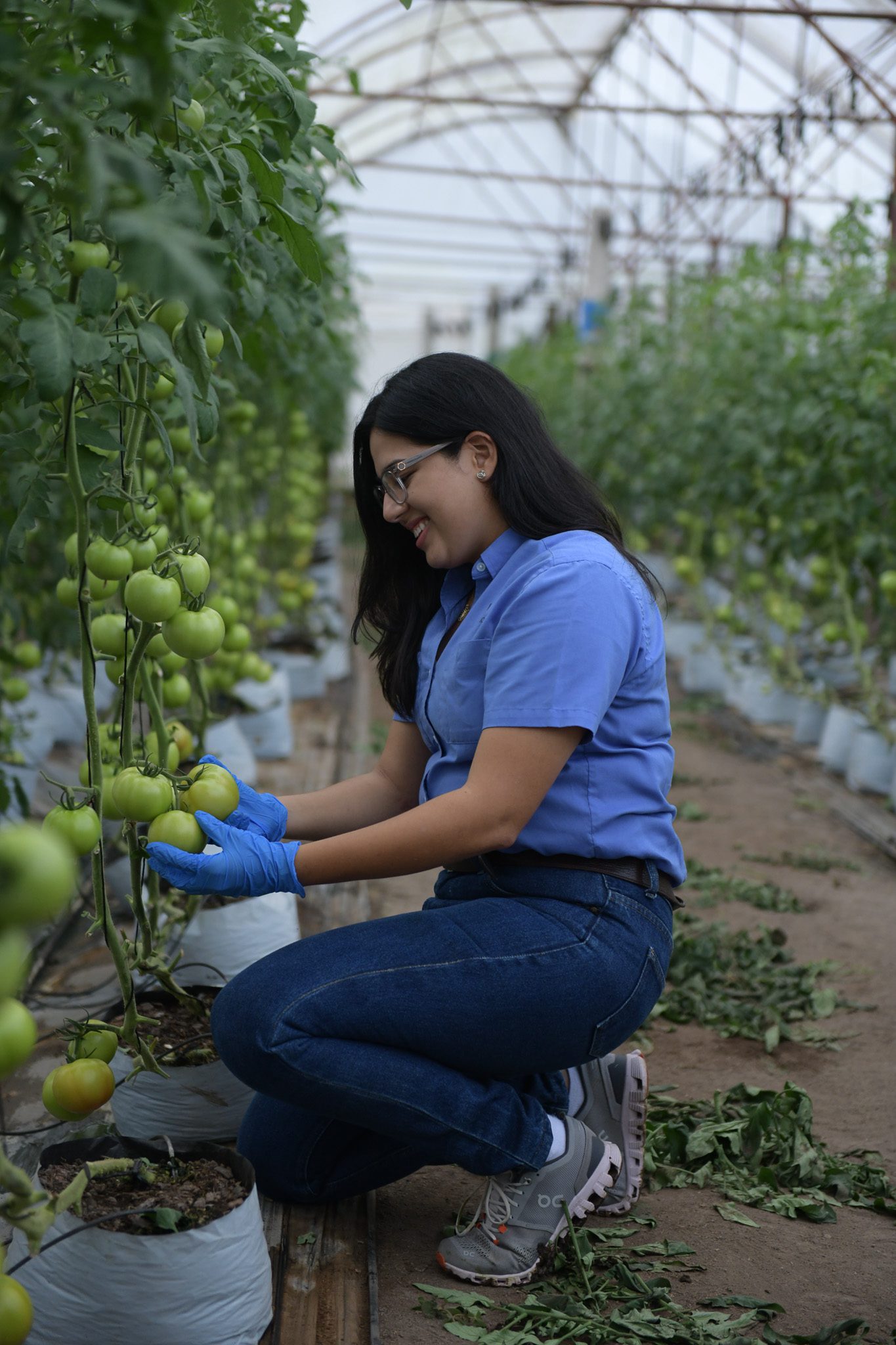
Module: Apiculture plant
Description and general objective of the module:
The beekeeping plant offers the student the opportunity to develop skills in the processes for obtaining bee products, through the development of various activities related to the production and packaging of honey, wax and other by-products. In addition, the student will be involved in carrying out field work for the installation and management of apiaries, allowing them to obtain knowledge of the processes required to obtain excellent quality bee products.
- Differentiate the installation and maintenance operations of apiaries to obtain highly productive hives considering the conservation of natural resources.
- Describe the processes required for bee products with excellent quality to be marketed for human consumption.
- Interpret basic indicators that define the feasibility of potential sustainable beekeeping ventures.
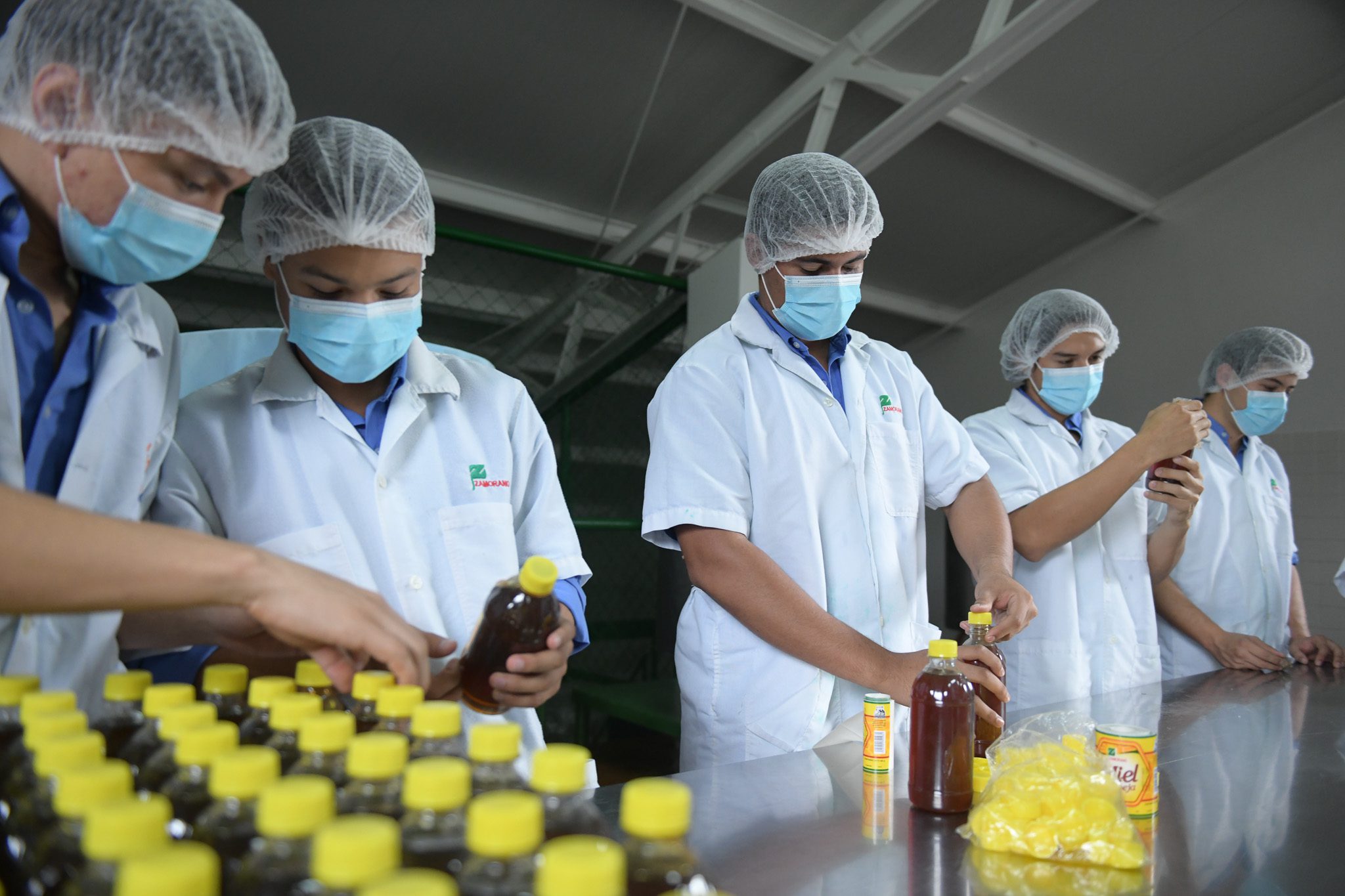
Module: Horticultural Plant/Postharvest
Description and general objective of the module:
In this module, the student will learn the technical-scientific bases for the good management of fruits and vegetables in their stage ofpostharvest, considering the process flows whether for fruits, leaves and herbs or roots and tubers, following the required quality and safety parameters. Additionally, you will have the opportunity to learn the principles for calculating the preparation of disinfectant solutions.
At the end of this module the student will be able to apply the basic concepts of driving posharvesting vegetables (leaves, fruits, roots and tubers); identify the criteria for reception, washing, classification and storage of vegetables according to their nature and customer specifications.
- Apply the processes postharvest for the conditioning of fruits and vegetables.
- Manage appropriate storage conditions for fruits and vegetables.
- Differentiate quality and safety parameters of fruits and vegetables, according to the standards established by the client.
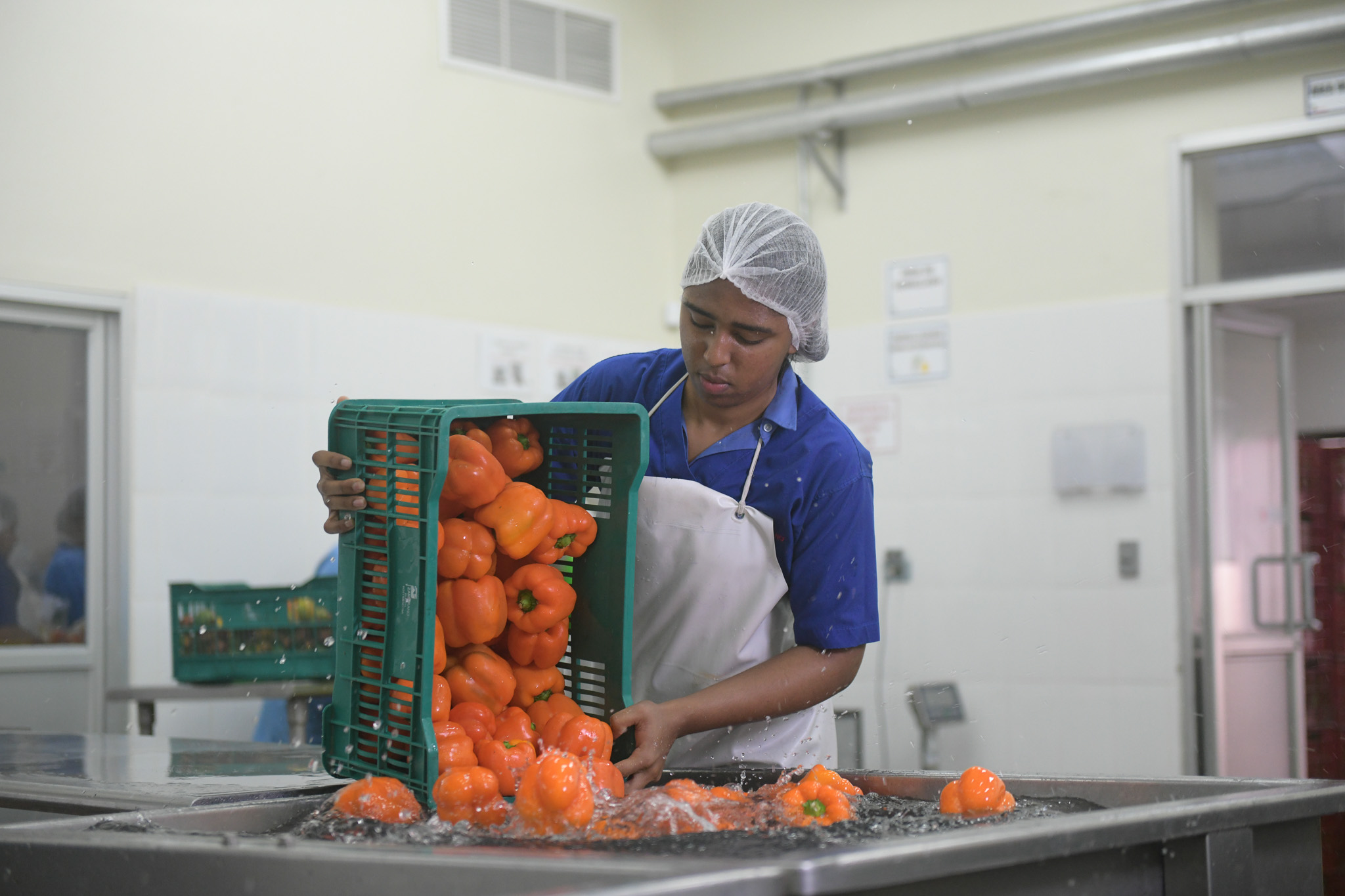
Module: Horticultural/Processing Plant
Description and general objective of the module:
In this module, the student will learn the technical-scientific bases for the good management of fruits and vegetables in their stage ofpostharvest, considering the process flows whether for fruits, leaves and herbs or roots and tubers, following the required quality and safety parameters. Additionally, you will have the opportunity to learn the principles for calculating the preparation of disinfectant solutions.
At the end of this module the student will be able to apply the basic concepts of driving posharvesting vegetables (leaves, fruits, roots and tubers); identify the criteria for reception, washing, classification and storage of vegetables according to their nature and customer specifications.
- Apply the processes postharvest for the conditioning of fruits and vegetables.
- Manage appropriate storage conditions for fruits and vegetables.
- Differentiate quality and safety parameters of fruits and vegetables, according to the standards established by the client.
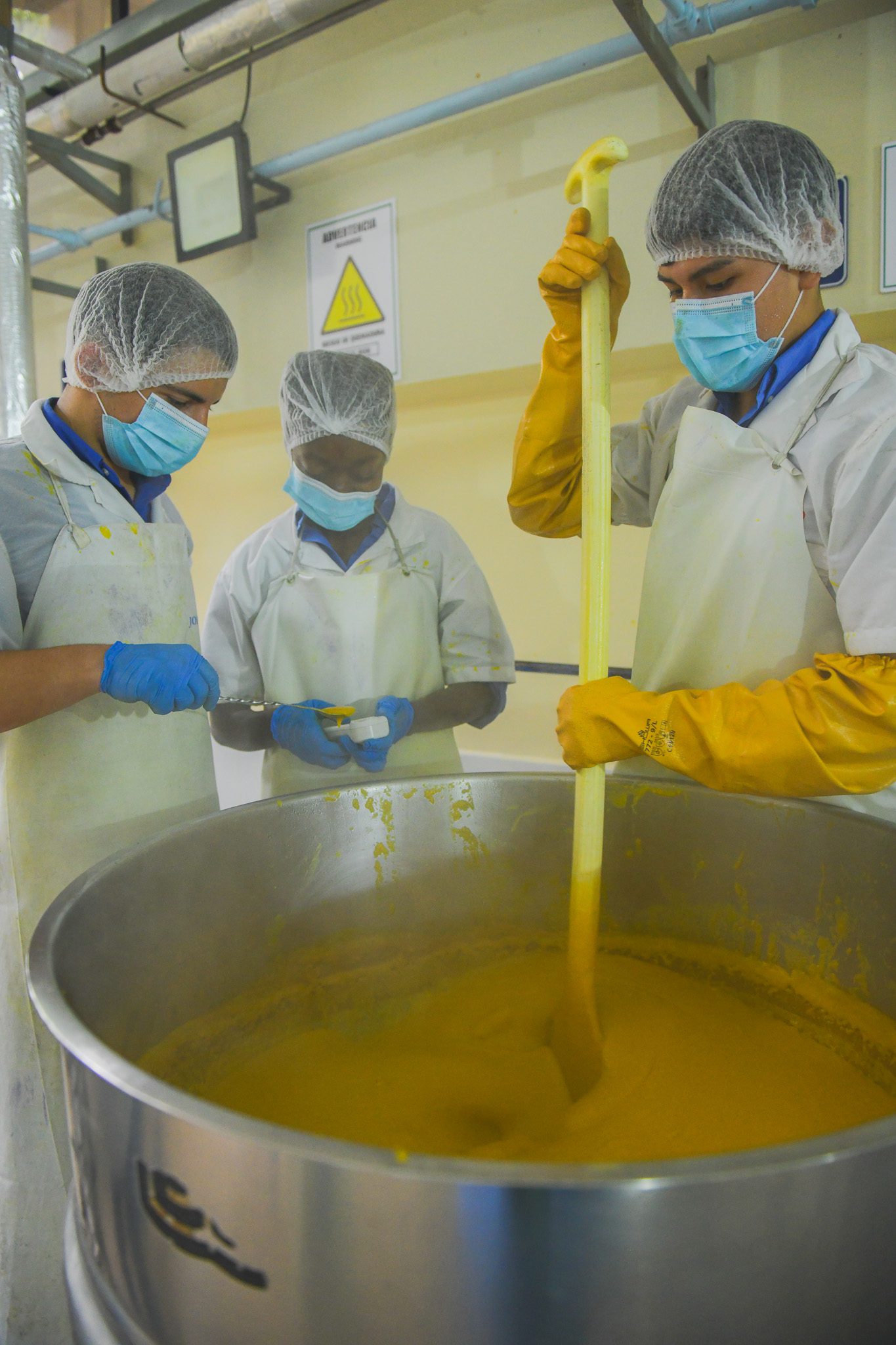
Module: Tissue Cultivation
Description and general objective of the module:
In this module, the student will learn the basic fundamentals of plant tissue culture focused on the mass propagation and production of pathogen-free plants, putting into practice the knowledge acquired in the biology, mathematics, plant production and plant propagation. In addition, she will have a general knowledge of the activities carried out in a plant tissue culture laboratory with the objective of micropropagating plants.
At the end of the module, the student will be able to operate basic equipment, glassware, instruments and laboratory tools in the cultivation of plant tissues, following established safety protocols. Also, you will learn about the preparation of culture media and the manipulation of plant tissues, maintaining optimal levels of asepsis for the efficient micropropagation of healthy plants.
- Operate basic equipment, glassware, instruments and plant tissue culture laboratory tools for the production of in vitro cultures following safety protocols.
- Repeat procedures to prepare culture media and manipulate plant tissues, maintaining optimal levels of asepsis in the laboratory in order to micropropagate healthy plants.
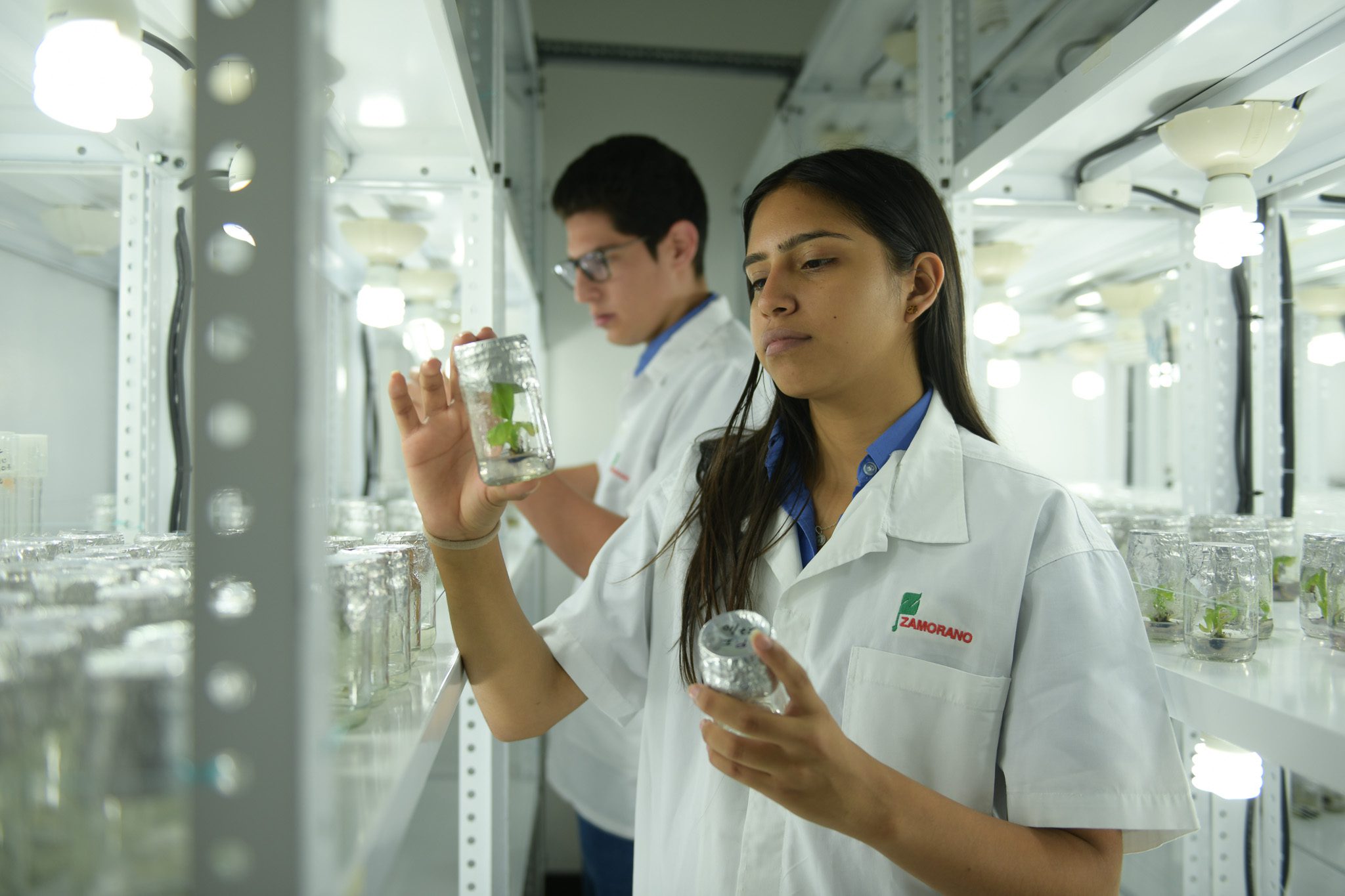
Módulo: Diagnóstico Molecular
Description and general objective of the module:
En el módulo de Diagnóstico Molecular, los/as estudiantes aprenden las aplicaciones de los marcadores moleculares en el mejoramiento genético de plantas, conocen las prácticas de extracción, cuantificación y dilución de ADN, la reacción en cadena de la polimerasa (PCR) y electroforesis.
Al finalizar del módulo, los/as estudiantes llegarán a conocer las prácticas que se deben realizar para hacer un diagnóstico molecular en plantas y la importancia de los marcadores moleculares en el mejoramiento genético de plantas.
- Explain the importance of genetic improvement in plants considering the bases and applications of selection assisted by molecular markers (SAM) with the purpose of achieving the understanding of technical-scientific information.
- Repeat procedures for DNA extraction, PCR and electrophoresis following safety regulations and correctly using laboratory equipment and reagents in order to analyze plant DNA and generate a diagnosis.
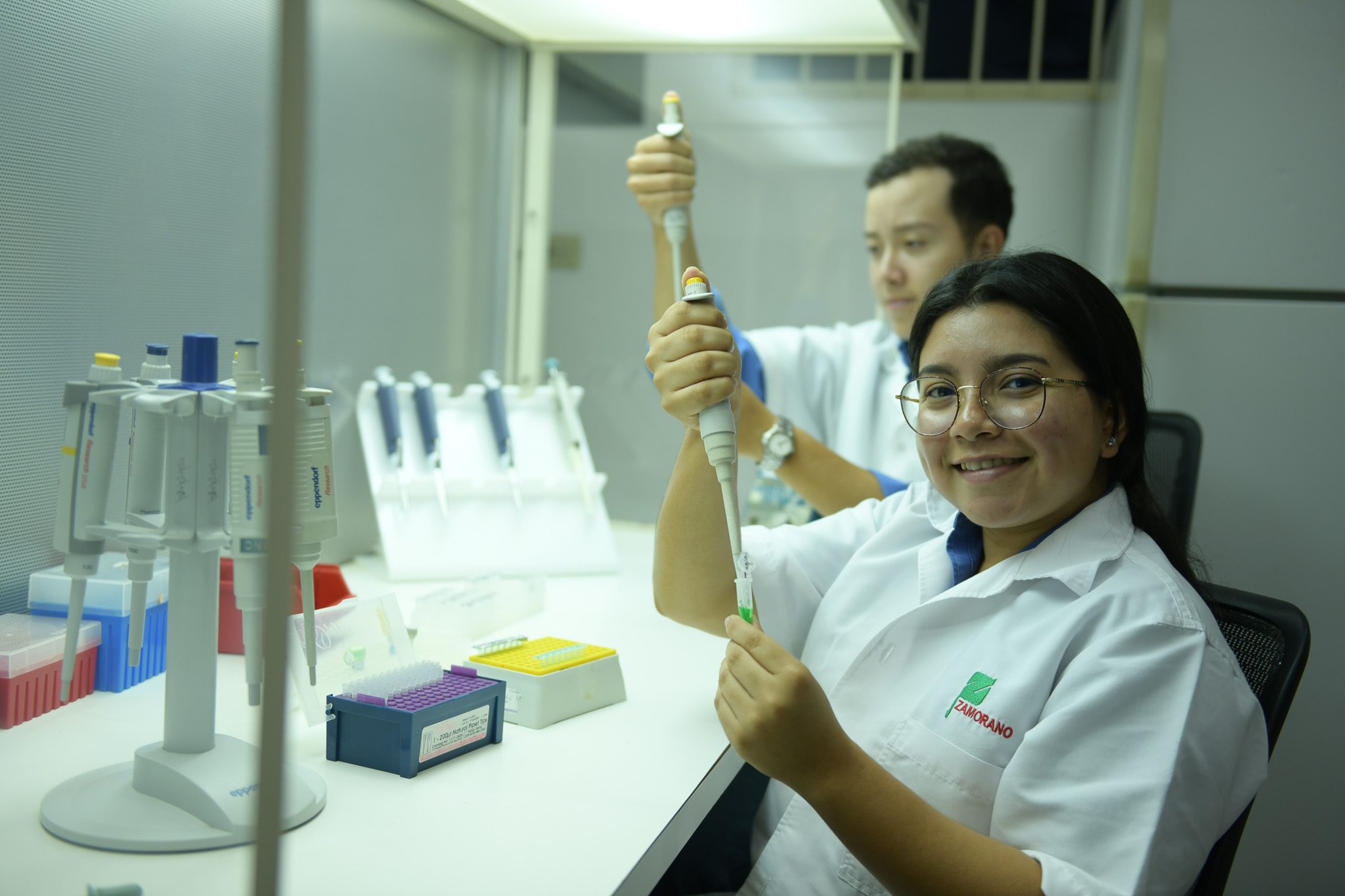
Module: Biotechnology of Animal Reproduction
Description and general objective of the module:
The module is a space where the student learns about the use of biotechnologies in assisted animal reproduction processes; Learn about semen collection techniques, evaluation of macro and microscopic parameters of bovine semen to determine its quality and learn about the conservation of male gametes at low temperatures to be used in reproductive processes such as artificial insemination and fertilization in-vitroin-vitro. Additionally, the module teaches the student the basic principles of other reproductive biotechnologies such as heat synchronization, in vitro fertilization, and embryo transfer.
At the end of the module, the student will be able to use techniques to collect, evaluate and cryopreserved bovine semen, to maximize the use of male gametes in assisted animal reproduction procedures.
- Apply the basic principles of male gamete processing that includes collection, evaluation and cryo-preservation to maximize the use of broodstock, taking into account the factors that affect semen quality.
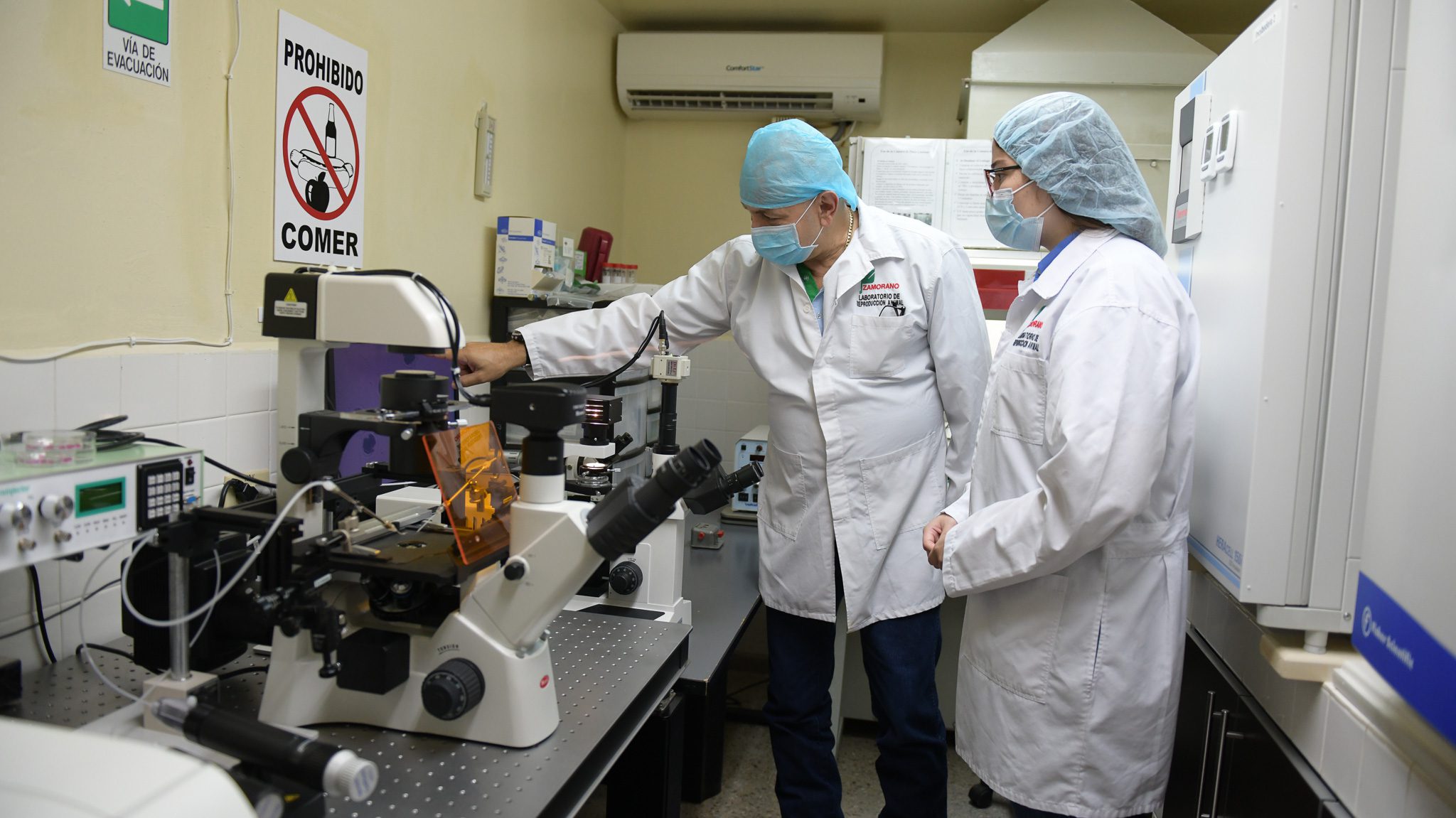
Module: Farm Administration
Description and general objective of the module:
In the module students will develop the skills to manage efficiently the human Resources, physical, natural and intellectual available from an agricultural holding, identifying the opportunities offered by markets with the purpose of achieving the objectives or goals of the organization in an efficient and effective manner.
Upon completion of the module, the student will be able to dIdentify and analyze agribusiness opportunities to manage agricultural production processes with an administrative approach and implement integration and competitiveness strategies in agroindustrial value chains,thus increasing theproductivity, profits and profitability, making efficient use of resources.
- Strategically plan an agricultural farm with the value chain approach to ensure the sustainability of agri-food systems, considering the principles of agricultural production.
- Apply integration and competitiveness strategies in agri-food value chains that boost the profits and profitability of agricultural farms, through the analysis of agricultural markets.
- Apply agribusiness analysis, management and administration methodologies that allow inteligentes y decision makingsmartanddetect agribusiness opportunities through data analysis. .
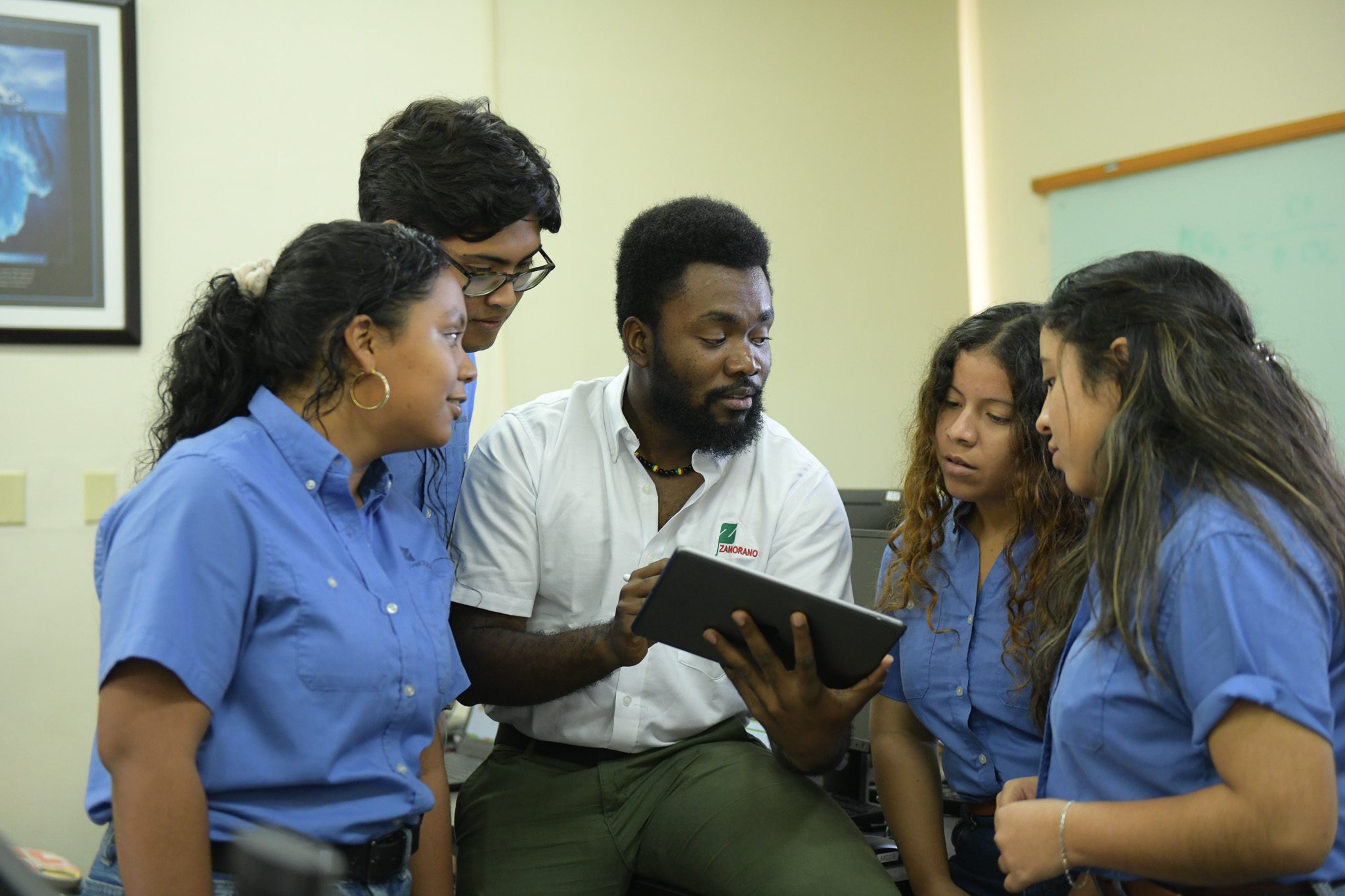
Module: Regenerative Agriculture
Description and general objective of the module:
In this module, students learn the basic activities of production processes considering regenerative agriculture practices such as crop rotation, conservation tillage systems, use of cover crops, and soil health measurements. In addition, they will learn the principles of organic production through the preparation of organic fertilizers and botanical extracts to control pests and diseases.
At the end of the module, the student will be able to explain and apply the most relevant regenerative agriculture practices in sustainable agricultural production.
- Explain the basic principles of regenerative agriculture to develop sustainable production systems that are resilient to climate change.
- Know the components of regenerative production systems and their management methods to create the conditions for a more sustainable agroecosystem.
- Prepare organic amendments that have the appropriate properties to help improve soil health.
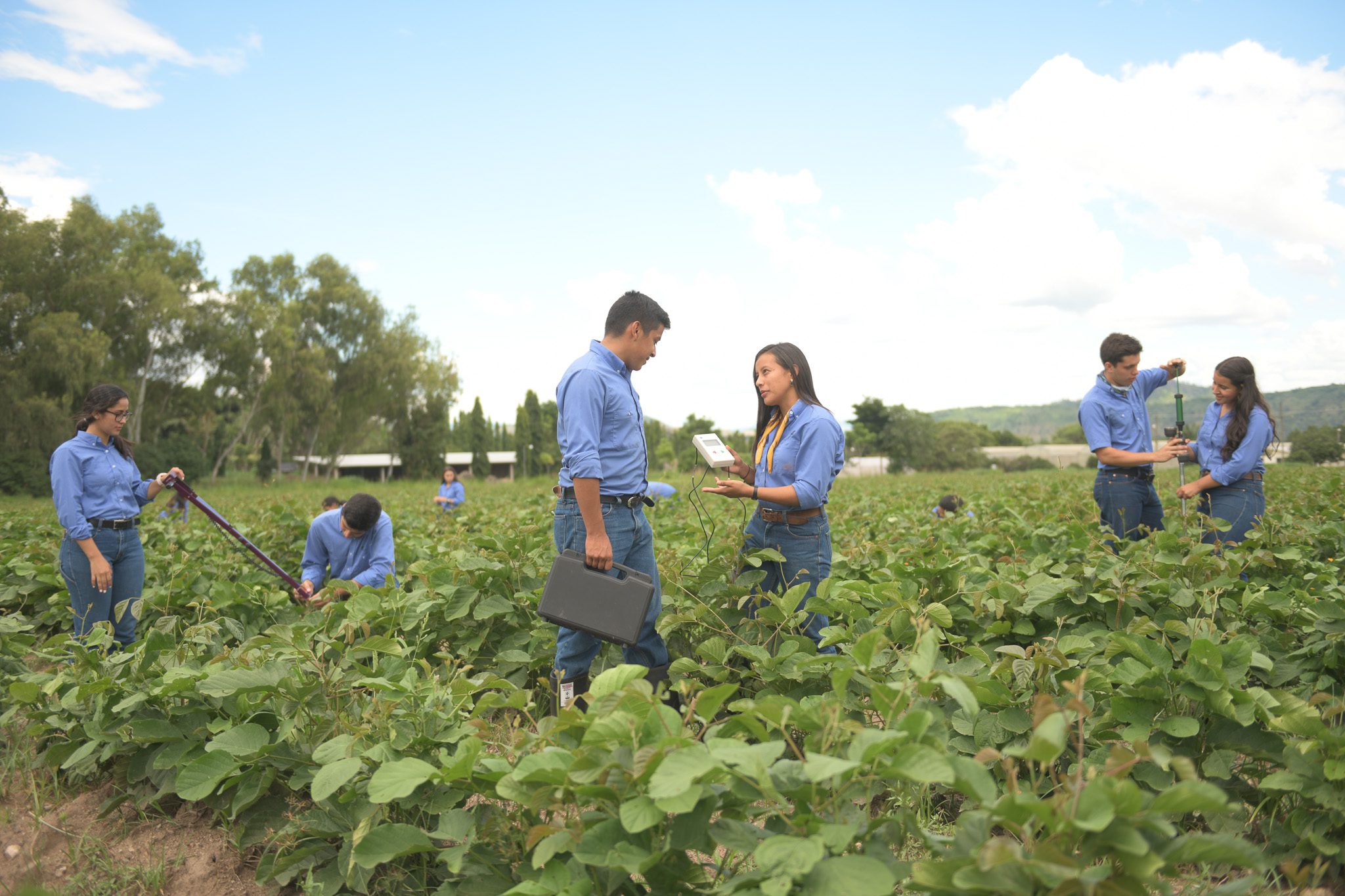
Module: Water Management
Description and general objective of the module:
In this module, the student will learn to extract field information through the application of various techniques and methods that will provide data to solve problems within the framework of water management, with a perspective of adaptation to climate change, which allows maximizing social well-being, development and sustainability of agroindustrial systems, with the aim of reducing the impact and water pressure on bodies of water and ecosystems in general.
At the end of the module, the student will be able to understand the principles of water management in agroindustrial systems by studying key topics such as water supply and demand and quantification of extractions. de extracciones.
1. Apply the principles of water resource management to propose solutions that promote sustainability in agro-industrial production and the rational use of water resources in community and urban projects.
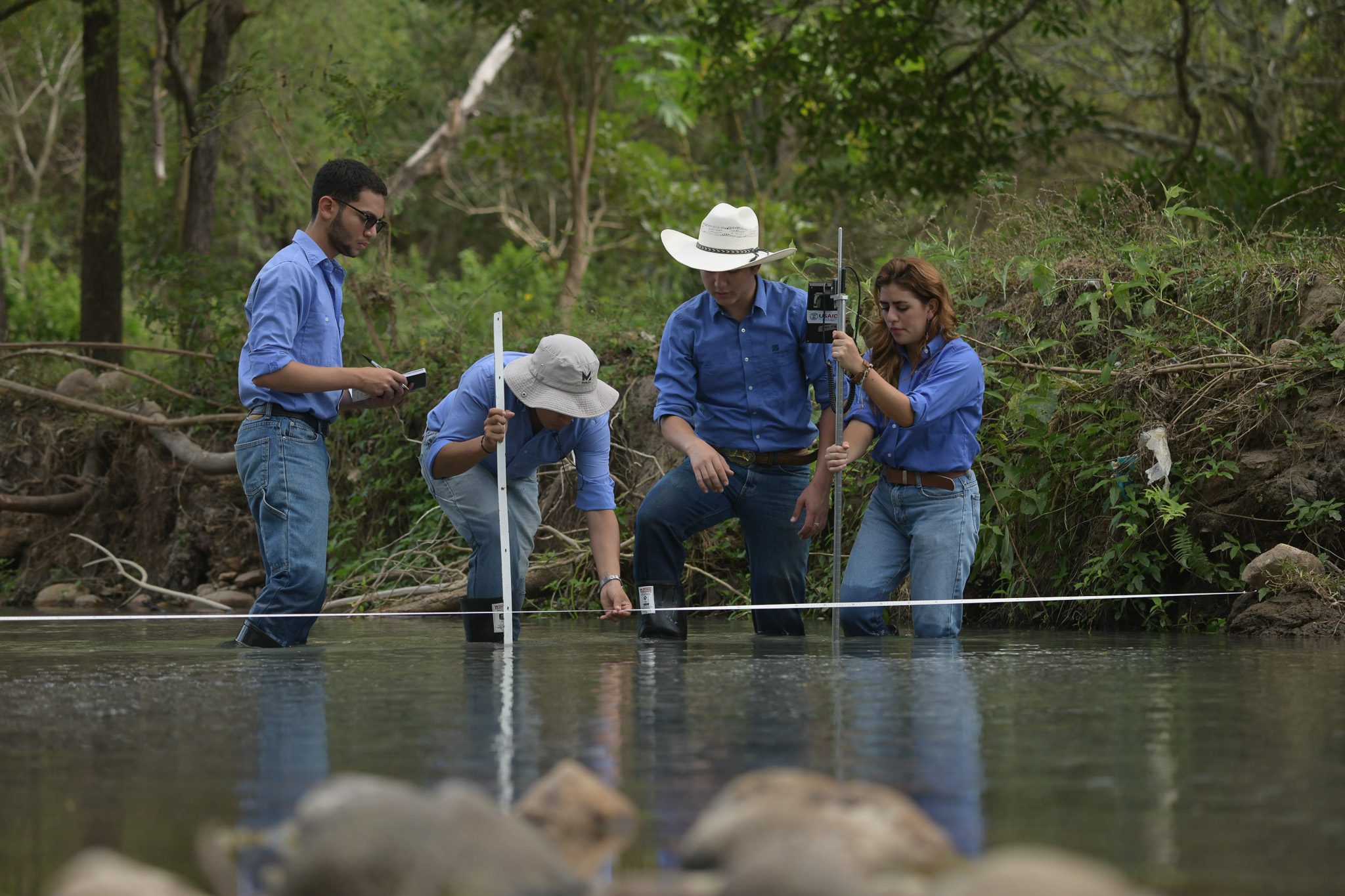
Module: Renewable Energy
Description and general objective of the module:
The renewable energy module allows students to understand and promote the construction of a sustainable energy bridge that meets the needs of the present and future generation. Students focus on the generation of a proposal that includes evaluation strategies for different resources, the efficiency of the technology for the transformation of their energy potential and the capacity for adoption of these in different regions or agro-industrial processes.
At the end of the module, the student will be able to develop proposals that integrate renewable energy technologies and energy efficiency in agriculture, applying their leadership skills with social and environmental responsibility. responsabilidad social y ambiental.
1. Propose alternatives for the implementation of renewable energy technologies based on the availability of resources, their energy potential and policies adopted in Latin America.
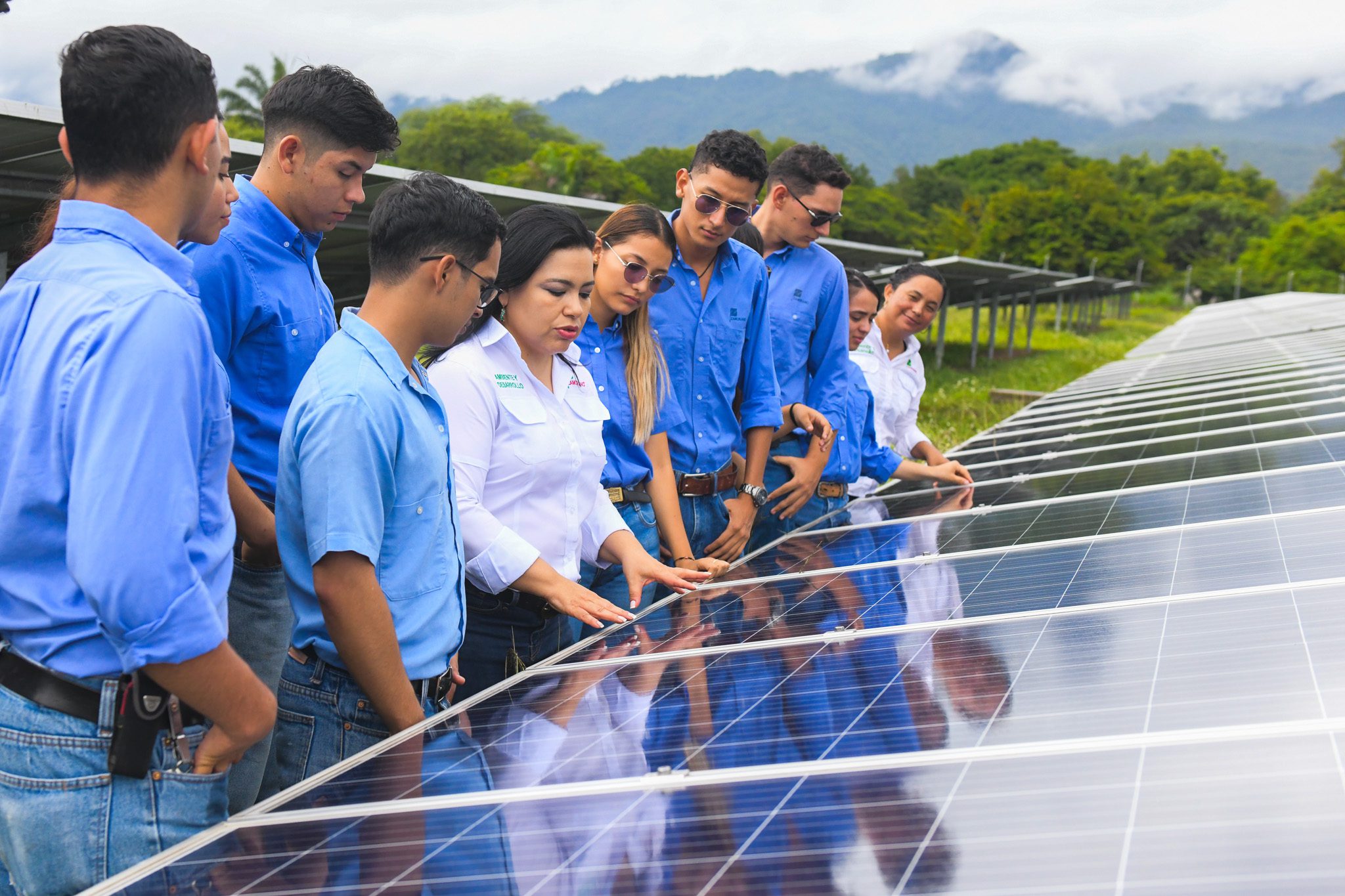
Module: Social Connection
Description and general objective of the module:
In this module he student will achieve apply solutions socio-environmental,doing useof thethought critical,he processofteaching learning offersto thestudentthechanceofundergostillcontext socio-environmental community insideandoutof theinstitutionforknow problematic realandoffer solutions. Hemoduleishe The best setting for the construction of critical thinking and the practical application of solutions is the university campus and/or the communities surrounding the institution, becoming an opportunity for the construction and execution of short-term project proposals.
To the finish he module,he student be ableofapply knowledgeofmanagement environmentalanddevelopment sustainable in he developmentofalternativeseithersolutionstoneeds,So as introduce alternativesofmanagement environmentalanddevelopment sustainable insideandoutof theinstitution.
- Apply knowledge of environmental management and sustainable development in the development of alternatives or solutions to the needs of specific groups.
- Present alternatives for environmental management and sustainable development inside and outside Zamorano.
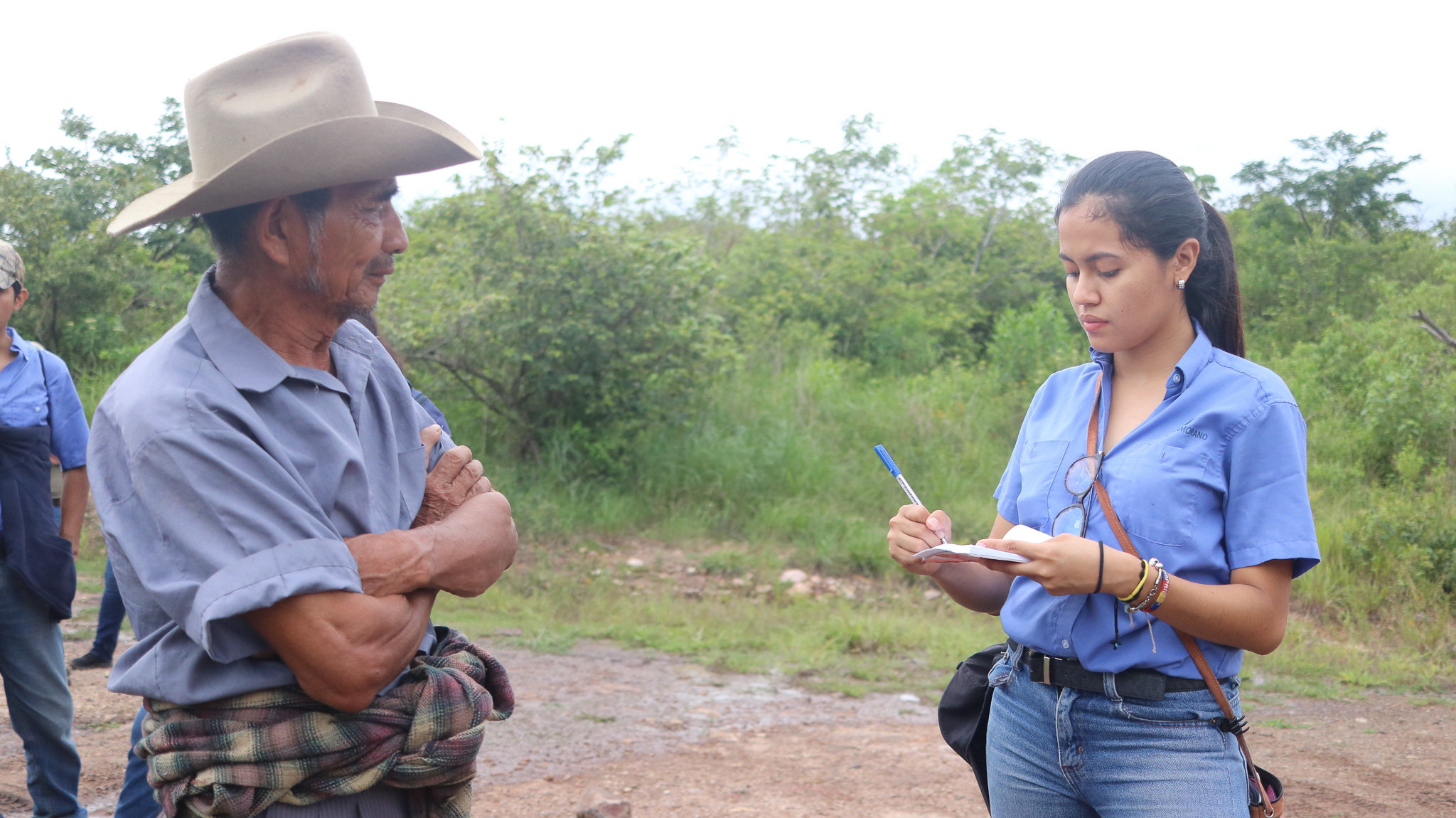
Module: Forest Business
Description and general objective of the module:
In the module, students acquire skills that allow them to design forest products in accordance with market demand, considering economic and ecological criteria. Also, they will be able to learn about the ecology and taxonomy of forest species to determine the available production and plan actions in the forest and plantations, emphasizing the importance of reaching maximum production capacity in a sustainable way and applying the concept of circular economy. Additionally, the student will be able to develop a business business model for a relevant environmental issue, integrating the concepts learned and local development opportunities.
General objective:
At the end of the module, the student will be able to formulate a plan for a sustainable forestry business, with a business focus, considering the productive capacity of a forest, forestry plantation and forestry industry.for the generation of abusiness modelin the area of the environmental sciences with opportunity for sustainable development.
- Determine the sustainable productive offer through the management of forest production, considering the market requirements for forest products and by-products.
- Define the strategy of a forestry and sustainable business with a business focus through market analysis;
- Define la forest valuation that guarantees the sustainable management of the forest considering main product and byproducts.
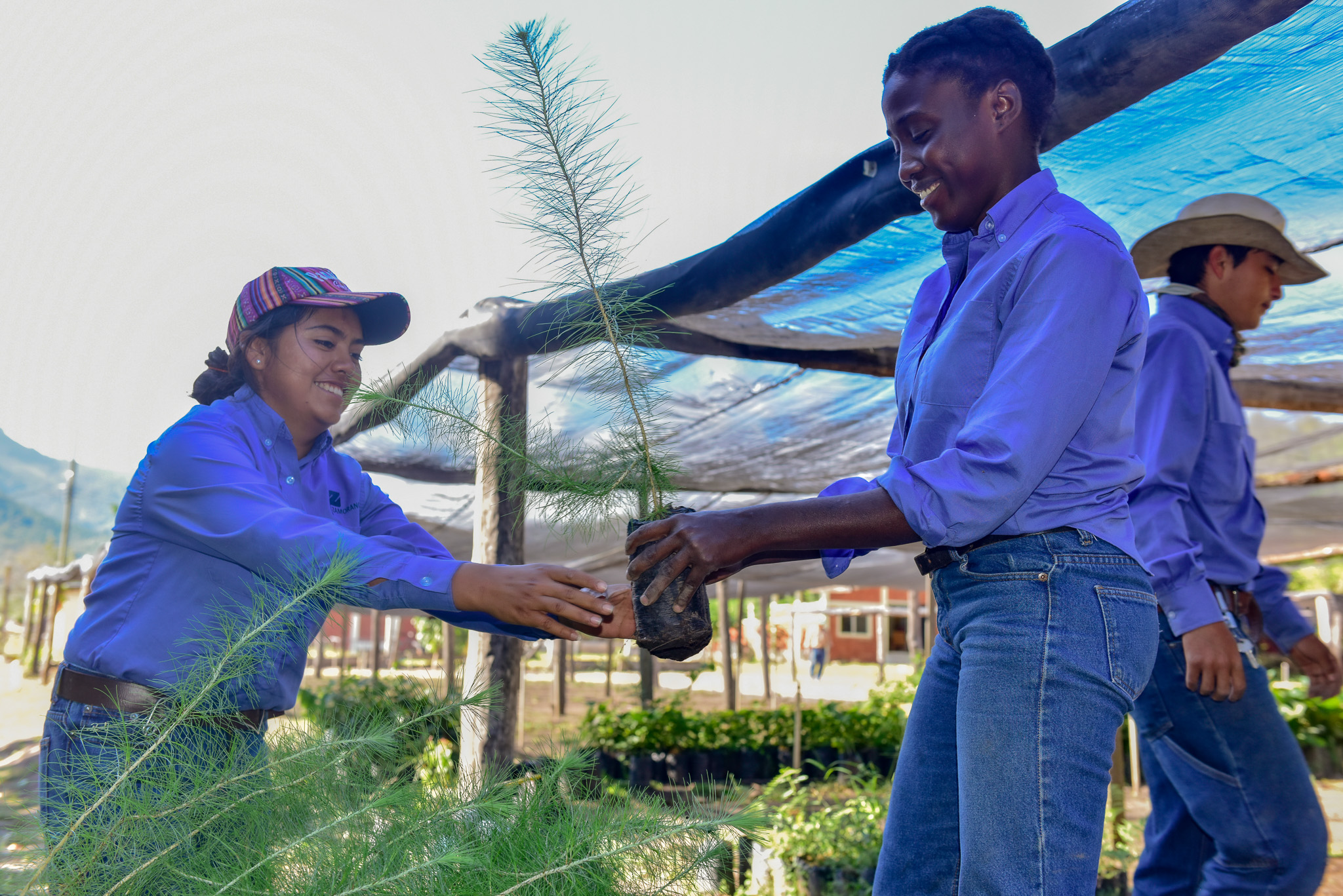
Module: Biological Control
Description and general objective of the module:
Biological control is the module that teaches students that there are alternatives to chemical control through the production and use of different organisms, fungi, nematodes, mites and insects, in the regulation of different populations of agricultural pests. Students carry out production processes, learn about the biology and mechanisms of action of the organisms produced; as well as the release of these in the field.
At the end of the module, the student will be able to recognize the production methods of macro- and microorganisms that can be used as natural enemies and biopesticides, in addition to knowing the biology and release techniques of these in the field as pest control entities in different crops.
- Apply mushroom production techniques bio controllers produced in the biological control laboratory and its proper application in the field.
- Apply production methods of the different natural enemies produced and their appropriate application in the field.
- Apply production techniques of entomopathogenic nematodes produced in the Biological Control laboratory and their appropriate application in the field so that students learn to produce and apply this type of control.
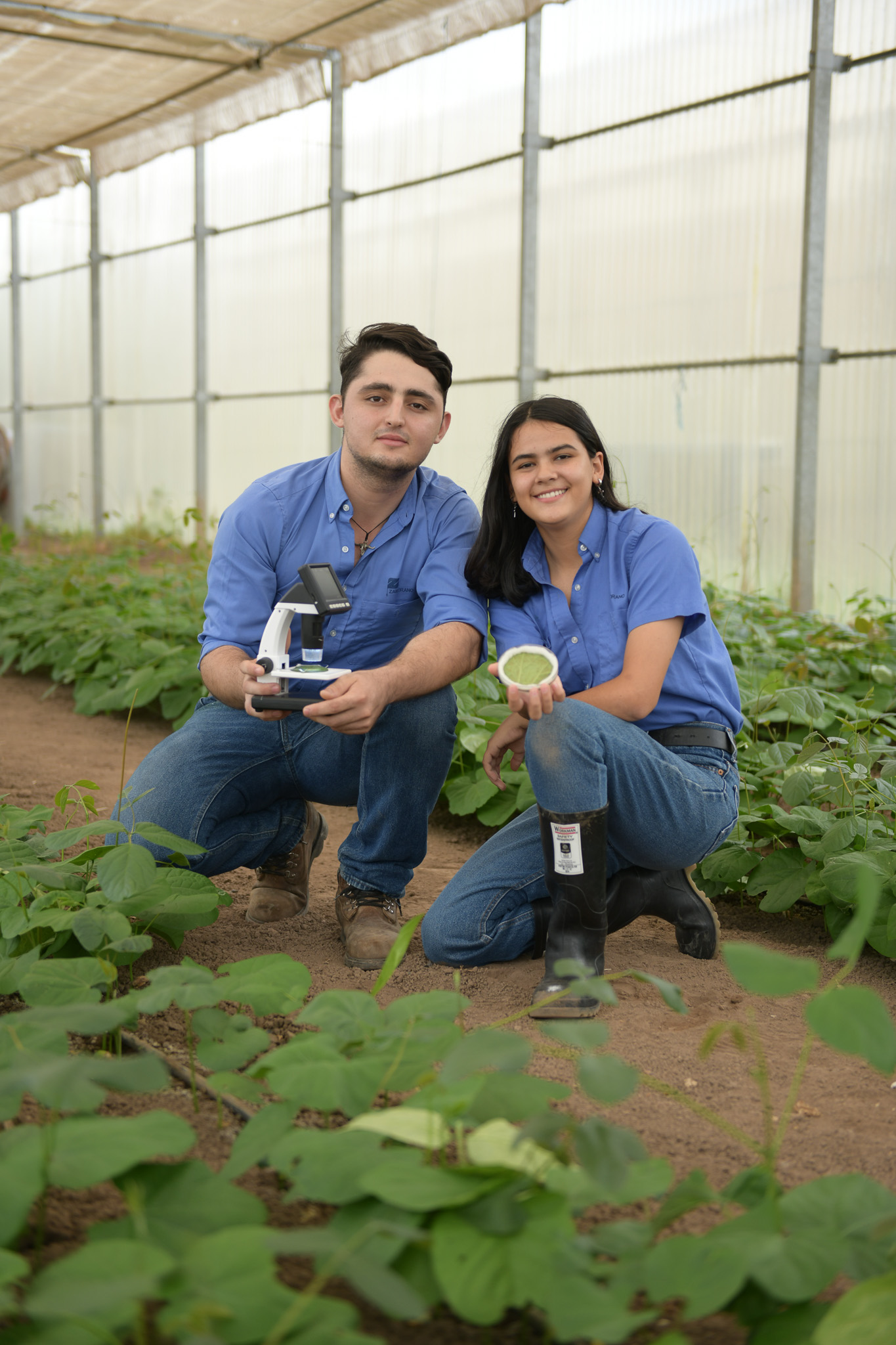
See all modules
Learn about the admission process
- Contact an admissions counselor
- Register and create your applicant profile
- Complete the online admissions test
